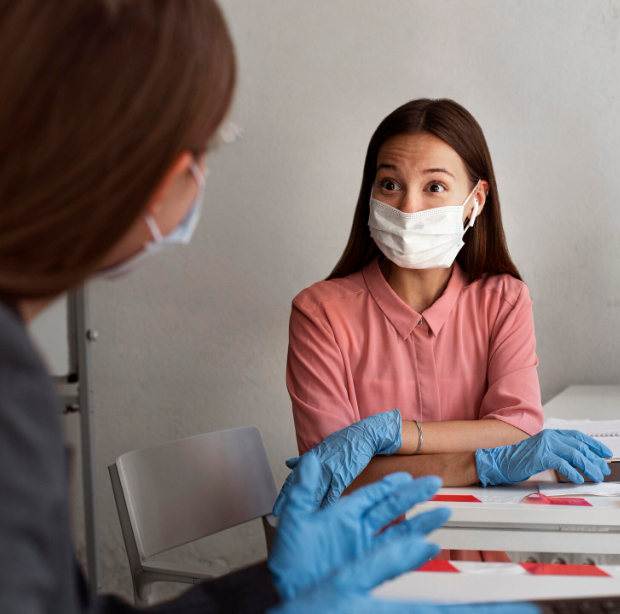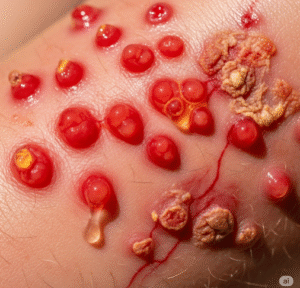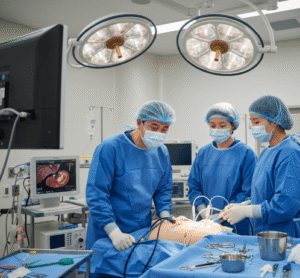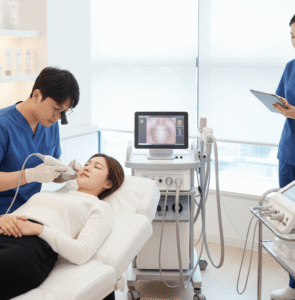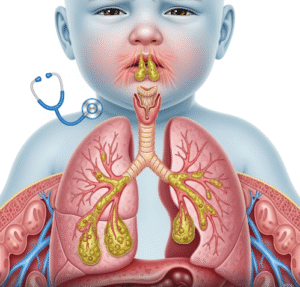Overview
Ciguatera poisoning is a type of foodborne illness caused by eating fish contaminated with ciguatoxins, naturally occurring toxins produced by marine microalgae. In Korea, seafood consumption is common, and specialized toxicology and emergency medicine centers provide diagnosis, supportive care, and management of symptoms.
What is Ciguatera Poisoning?
Ciguatera poisoning occurs after consuming reef fish contaminated with ciguatoxins, which accumulate in larger predatory fish such as barracuda, grouper, and snapper. The toxins affect nerve function, leading to gastrointestinal, neurological, and cardiovascular symptoms. It is the most common non-bacterial marine food poisoning worldwide.
Symptoms
- Nausea, vomiting, and diarrhea
- Abdominal cramps
- Muscle pain and weakness
- Tingling or numbness in hands, feet, or lips
- Reversal of hot and cold sensation (temperature dysesthesia)
- Itching or rash
- Low blood pressure, slow heart rate, or irregular heartbeats
- Fatigue and malaise
Causes
- Consumption of reef fish contaminated with ciguatoxins
- Toxins originate from marine microalgae (Gambierdiscus species)
- Toxins accumulate in larger, predatory fish through the food chain
Risk Factors
- Eating large predatory reef fish
- Frequent consumption of tropical or subtropical reef fish
- Travel to or consumption of imported fish from ciguatera-endemic regions
- Lack of awareness about high-risk fish species
Complications
- Persistent neurological symptoms, including paresthesia and temperature dysesthesia
- Cardiovascular instability in severe cases
- Dehydration from prolonged vomiting or diarrhea
- Recurring symptoms triggered by alcohol, caffeine, or certain foods for weeks to months
- Rare severe reactions requiring hospitalization
Prevention
- Avoid consumption of large reef fish from tropical and subtropical regions
- Educate fish handlers and consumers about high-risk species
- Proper storage and preparation do not eliminate ciguatoxins
- Awareness of imported seafood sources
Treatment Options in Korea
Treatment is primarily supportive and symptom-based, as there is no specific antidote:
- Acute management:
- Intravenous fluids to manage dehydration
- Anti-nausea and anti-diarrheal medications
- Pain management for muscle aches or neurological discomfort
- Neurological symptom management:
- Medications such as gabapentin for persistent nerve-related symptoms
- Monitoring and supportive care for cardiovascular symptoms
- Specialized hospitals in Korea:
- Samsung Medical Center, Seoul National University Hospital, Asan Medical Center, Severance Hospital Emergency and Toxicology Units
- Multidisciplinary teams including emergency physicians, toxicologists, and neurologists
- Follow-up care:
- Monitoring for persistent neurological symptoms
- Guidance on dietary restrictions to prevent symptom recurrence
- Education on symptom management and warning signs for complications

